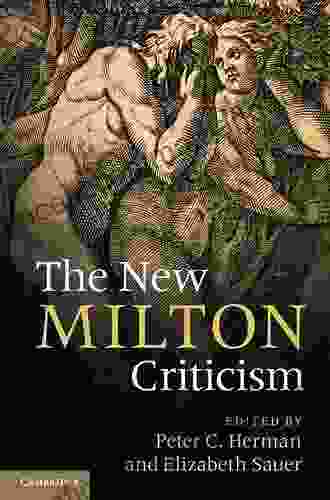Sharing Lessons About Decentralization: A Comprehensive Guide to the Future of Web3

5 out of 5
| Language | : | English |
| File size | : | 1029 KB |
| Text-to-Speech | : | Enabled |
| Screen Reader | : | Supported |
| Enhanced typesetting | : | Enabled |
| Word Wise | : | Enabled |
| Print length | : | 241 pages |
In the rapidly evolving digital landscape, the concept of decentralization has emerged as a transformative force. It empowers individuals and communities to take control of their data, transactions, and decision-making processes. This article will provide a comprehensive guide to the principles, benefits, challenges, and practical applications of decentralization, equipping you to understand and harness its potential in the emerging Web3 ecosystem.
Key Principles of Decentralization
Decentralization is characterized by several fundamental principles that underpin its transformative nature:
- Distribution of Power: Decentralized systems distribute power among multiple entities, eliminating the need for a central authority or intermediary to control and manage operations.
- Consensus Mechanisms: Participants in a decentralized network reach consensus on the validity of transactions and data through mechanisms such as proof-of-work, proof-of-stake, or voting.
- Transparency and Immutability: Transactions and data on a decentralized ledger are publicly accessible and verifiable, ensuring transparency and resistance to tampering or alteration.
- Peer-to-Peer Architecture: Decentralized systems rely on peer-to-peer networks where participants interact directly without the need for centralized servers or infrastructure.
Benefits of Decentralization
The principles of decentralization translate into tangible benefits that empower users and revolutionize industries:
- Increased Security: By distributing data across multiple nodes, decentralization reduces the risk of single points of failure and makes it highly resistant to censorship or malicious attacks.
- Enhanced Privacy: Decentralized systems typically provide users with greater control over their personal data, reducing the risk of privacy breaches or data misuse.
- Lower Transaction Costs: By eliminating intermediaries and reducing the need for expensive infrastructure, decentralized applications can offer lower transaction fees compared to traditional centralized systems.
- Increased Accessibility: Decentralization enables anyone with an internet connection to participate in global networks and access financial services, information, and decision-making processes.
- Community Empowerment: Decentralized systems foster a sense of ownership and community among participants, promoting collaboration, transparency, and democratic decision-making.
Challenges of Decentralization
Despite its transformative potential, decentralization also presents certain challenges that need to be addressed:
- Scalability: Achieving high transaction throughput while maintaining decentralization can be a technical challenge for some decentralized architectures.
- Regulatory Compliance: The emerging nature of decentralized technologies can create regulatory uncertainties and challenges for businesses and governments seeking to adopt them.
- User Education: Understanding and using decentralized technologies requires a certain level of technical literacy, which can present a barrier to adoption for some users.
- Governance: Establishing effective governance mechanisms to ensure accountability, transparency, and decision-making in decentralized organizations can be complex.
- Security Risks: While decentralization can enhance security, it can also introduce new vulnerabilities, such as smart contract exploits or malicious node operators.
Practical Applications of Decentralization
Beyond theoretical concepts, decentralization is finding practical applications across industries, transforming the way we interact with digital technologies:
- Blockchain Technology: Blockchain is a decentralized distributed ledger that records transactions across a network of computers, forming the backbone of cryptocurrencies like Bitcoin.
- Cryptocurrencies: Cryptocurrencies are digital currencies that operate on decentralized blockchain networks, enabling secure and transparent peer-to-peer transactions.
- Decentralized Finance (DeFi): DeFi applications offer financial services such as lending, borrowing, and trading on decentralized platforms, eliminating intermediaries and reducing transaction costs.
- Decentralized Autonomous Organizations (DAOs): DAOs are community-governed organizations that operate on a decentralized blockchain, allowing members to participate in decision-making and manage shared resources.
- Non-Fungible Tokens (NFTs): NFTs are unique digital assets stored on a blockchain, representing ownership of digital content, artwork, or collectibles.
Decentralization is a transformative force reshaping the digital landscape by empowering individuals and communities to take control of their data, transactions, and decision-making processes. Its principles of distributed power, consensus mechanisms, transparency, and peer-to-peer architecture offer a range of benefits, including increased security, enhanced privacy, lower transaction costs, and increased accessibility. While challenges such as scalability, regulatory compliance, and user education need to be addressed, the practical applications of decentralization across industries demonstrate its vast potential to revolutionize the way we interact with digital technologies and build a more equitable and empowered society. As the Web3 ecosystem continues to evolve, understanding and harnessing the power of decentralization will be key to unlocking its transformative benefits for a decentralized future.
5 out of 5
| Language | : | English |
| File size | : | 1029 KB |
| Text-to-Speech | : | Enabled |
| Screen Reader | : | Supported |
| Enhanced typesetting | : | Enabled |
| Word Wise | : | Enabled |
| Print length | : | 241 pages |
Do you want to contribute by writing guest posts on this blog?
Please contact us and send us a resume of previous articles that you have written.
 Top Book
Top Book Novel
Novel Fiction
Fiction Nonfiction
Nonfiction Literature
Literature Paperback
Paperback Hardcover
Hardcover E-book
E-book Audiobook
Audiobook Bestseller
Bestseller Classic
Classic Mystery
Mystery Thriller
Thriller Romance
Romance Fantasy
Fantasy Science Fiction
Science Fiction Biography
Biography Memoir
Memoir Autobiography
Autobiography Poetry
Poetry Drama
Drama Historical Fiction
Historical Fiction Self-help
Self-help Young Adult
Young Adult Childrens Books
Childrens Books Graphic Novel
Graphic Novel Anthology
Anthology Series
Series Encyclopedia
Encyclopedia Reference
Reference Guidebook
Guidebook Textbook
Textbook Workbook
Workbook Journal
Journal Diary
Diary Manuscript
Manuscript Folio
Folio Pulp Fiction
Pulp Fiction Short Stories
Short Stories Fairy Tales
Fairy Tales Fables
Fables Mythology
Mythology Philosophy
Philosophy Religion
Religion Spirituality
Spirituality Essays
Essays Critique
Critique Commentary
Commentary Glossary
Glossary Bibliography
Bibliography Index
Index Table of Contents
Table of Contents Preface
Preface Introduction
Introduction Foreword
Foreword Afterword
Afterword Appendices
Appendices Annotations
Annotations Footnotes
Footnotes Epilogue
Epilogue Prologue
Prologue Martin Heidegger
Martin Heidegger Antonio Machado
Antonio Machado Harald Bathelt
Harald Bathelt Carolina Frohlich
Carolina Frohlich Patrick C Harrison Iii
Patrick C Harrison Iii Damien Lewis
Damien Lewis Heather Dean
Heather Dean Erika Meitner
Erika Meitner Shell Teri
Shell Teri David Hughes
David Hughes L V Lane
L V Lane Diana Palmer
Diana Palmer Dan Cosley
Dan Cosley Don Colbert
Don Colbert Dean Jobb
Dean Jobb Angie K Griffin
Angie K Griffin David Stewart
David Stewart Stan Craig
Stan Craig Mcclintock Acsmhour
Mcclintock Acsmhour Lakshmi Chintaluri
Lakshmi Chintaluri
Light bulbAdvertise smarter! Our strategic ad space ensures maximum exposure. Reserve your spot today!

 Derek BellHow Timothy Leary, Ram Dass, Huston Smith, and Andrew Weil Killed the Fifties...
Derek BellHow Timothy Leary, Ram Dass, Huston Smith, and Andrew Weil Killed the Fifties... Roger TurnerFollow ·15.6k
Roger TurnerFollow ·15.6k Morris CarterFollow ·6.9k
Morris CarterFollow ·6.9k Davion PowellFollow ·4.3k
Davion PowellFollow ·4.3k Keith CoxFollow ·17.9k
Keith CoxFollow ·17.9k Barry BryantFollow ·14.8k
Barry BryantFollow ·14.8k Harold PowellFollow ·10.5k
Harold PowellFollow ·10.5k Stuart BlairFollow ·9.4k
Stuart BlairFollow ·9.4k Kazuo IshiguroFollow ·18.8k
Kazuo IshiguroFollow ·18.8k

 Ashton Reed
Ashton ReedClean(ish) Food for People Who Like to Eat Dirty
By: [Your Name] Are...

 Ronald Simmons
Ronald SimmonsThe Handbook for Educators: A Comprehensive Guide to...
The Handbook for...

 Derrick Hughes
Derrick HughesAny Place Hang My Hat: A Hauntingly Beautiful Novel by...
A Masterpiece of...

 Adrien Blair
Adrien BlairFly Me to the Moon Vol. 5: A Lunar Odyssey through...
In the vast...

 William Powell
William PowellTips By Gardeners On Variety Of Subjects
Gardening...
5 out of 5
| Language | : | English |
| File size | : | 1029 KB |
| Text-to-Speech | : | Enabled |
| Screen Reader | : | Supported |
| Enhanced typesetting | : | Enabled |
| Word Wise | : | Enabled |
| Print length | : | 241 pages |











